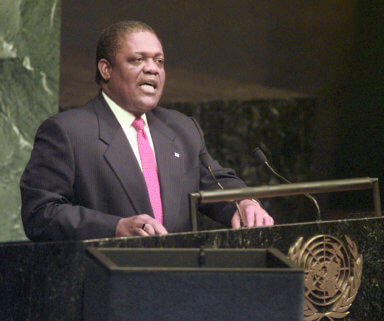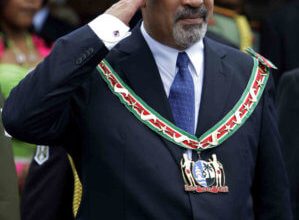RAPE LAW REVIEW

A recent ruling on rape in marriages in The Bahamas appears to have stunned authorities into moving to change marital rape laws with the current administration vowing to do so in a matter of months.
For most of the past 20 years, successive administrations in Nassau, The Bahamian capital, have proverbially kicked the bucket down the road, leaving this highly contentious issue for whomever wins the next general elections.
Back in 2009, a determined Prime Minister Hubert Ingraham said he was moving full speed ahead to make rape in marriages a criminal offense but he quickly backed away after both government and opposition lawmakers made it clear they would not support an amendment in any way, shape or form. Church leaders and other civil society groups were also quite vocal against the proposed legislation. It died a natural death. The earliest attempts to change date back to around 2002.
But after local Justice Denise Lewis-Johnson ruled eight weeks ago that a spouse cannot be charged for raping his or her partner because no local law covers such, the ruling triggered an uproar with calls for immediate reform. The timing of the ruling also appears to be just right this time with far less opposition to impending amendments being made.
In recent days, Attorney General Ryan Pinder said the draft amendment will head to parliament after national consultations for inputs end shortly. He said authorities are determined to amend the law to make marital rape an offense.
“We want to keep it open and get some feedback. We’ve already received a few comments on the legislation from different parties to tweak it or provide certain different language that we are looking at. We don’t want to discourage anybody from providing the necessary input on such an important issue. So, no decision has been made as a deadline for comment at this time,” he told reporters recently.
In the recent ruling, Justice Denise Lewis-Johnson allowed an unnamed woman to divorce her husband because he often raped her and treated her cruelly and indifferently, especially after imbibing alcohol.
The judge said she was forced by local statutes to follow local laws strictly and none indicates that a man can rape his lawfully wedded wife.
“The court accepts that rape is a most heinous act of cruelty and a malicious violation of a person. However, on a strict reading of laws of The Bahamas, there is no rape in marriage. Pursuant to section 3 of the sexual offences act, the law does not allow for one spouse to rape the other. In this place we interpret existing laws and apply them. We cannot and must not succumb to the temptation to reform laws,” the judge said.
Now AG Pinder said there will be no dithering as to whether the law will be amended as Bahamians have over time been debating this issue quite regularly and authorities can build on the previous work by past administrations.
The un-named petitioner in the case had complained that her husband would simply undress, lubricate himself, have a grand ole time and then either fall off to sleep or play with his phone or computer afterward, leaving her feeling depressed or like a normal rape victim.
Former PM Ingraham said he was forced to back off from changing the law largely because of resistance from within his own party, the church and prominent citizens.
“I assume that Prime Minister Philip Davis will make a judgement as to whether or not he has the support of his members to pass it. You know, many persons who you see parade around here as an ordinary, decent human being do not believe that marital rape ought to be a criminal offense. They have their views.”
The couple had married in 2005 and have one child. The petitioner told the court that she has since abandoned the home because she was unable to deal with the emotional abuse any longer.
“The last time the respondent climbed on top of the petitioner was on 18th April 2021 and the following morning, the petitioner suffered a meltdown at work. The petitioner stated that the events which transpired on 18th April 2021 felt like an out-of-body experience. The petitioner alleged that the respondent would come home, lubricate himself, take his pleasure, and leave. After each occasion she would have to find ways to distract herself.” She also said he would then roll over, turn attention to the television or simply fall asleep.





